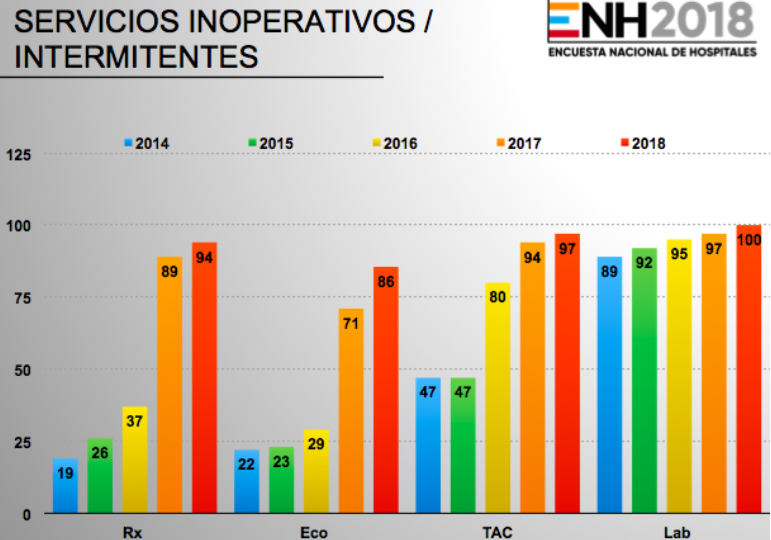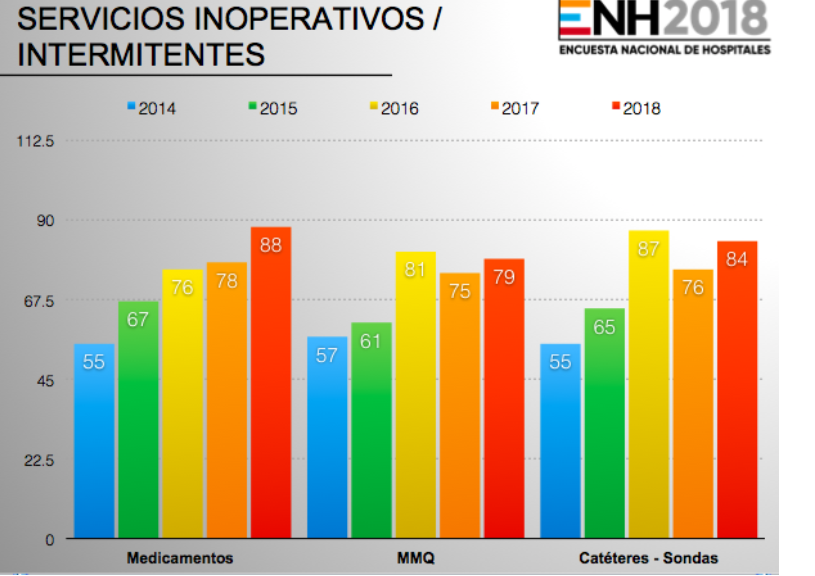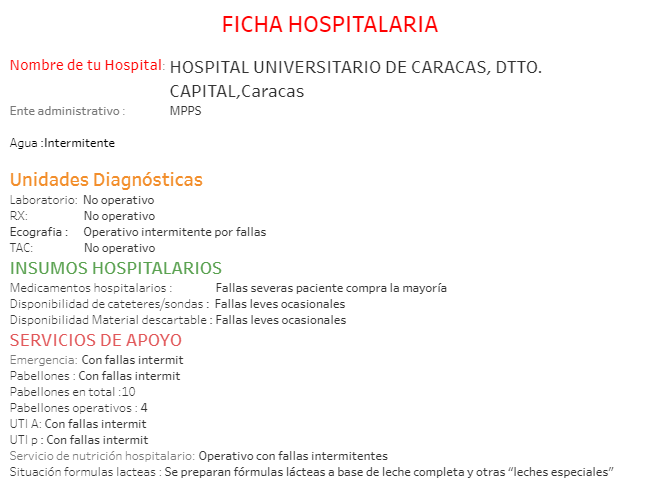Venezuelan Hospitals’ Condition Worsens: The 2018 National Hospital Poll
For the fifth year in a row, NGO Médicos por la Salud and the National Assembly dare to do what the government has refused to: expose the chaotic reality in the Venezuelan Hospital Network and how the health crisis has gotten worse than ever.


Photo: EFE, retrieved
A year ago, the 2017 National Hospital Poll threw a dim light on the bleak reality of our hospital network. Numbers back then were bad, but this year’s results make those look great, as lawmaker (and oncologist) José Manuel Olivares and infectologist Julio Castro acknowledged last Monday in a press conference. They represent the National Assembly and NGO Médicos Por la Salud (Doctors for Health) respectively, the two organizations behind the project that, since 2014, has revealed the data the Venezuelan government refuses to divulge.
This year, 104 public hospitals, along with 33 private clinics, were surveyed across 52 cities in 22 states (only Amazonas and Delta Amacuro failed to report any data), which amounts to a total theoretical capacity of 18,300 beds and 730 operation rooms, of which only a fraction remains operative.
Diagnostic and Nutritional Services
Last year it looked like diagnostic services couldn’t do any worse, but time proved us wrong. Every single one of the four evaluated services is working intermittently or is completely halted in most hospitals. Things are particularly bad with clinical laboratories, affected in literally all health centers evaluated. It’s important to remember that the poll only considers “big” hospitals, where most of these services are mandatory by law.
The results highlight one of the most difficult challenges Venezuelans physicians must face in their daily practice: the almost complete absence of tools universally found everywhere, like X-rays (Rx) or CAT scans, absolutely necessary for a diagnosis.
Nutritional services are also in critical numbers. Halted or working intermittently in 96% of all evaluated centers, there’s an alarming 11% increase compared to last year’s numbers. Infant milk formulas are absent in 66% of all hospitals, unacceptable for vulnerable patients like HIV+ mothers and their babies.
Operation Rooms, Emergencies and ICUs
Only 7,95% of Emergency Rooms in the country are working normally, most of them in private centers. That’s a small increase compared to last year’s 6,72% but, tellingly, the percentage of non-operative ERs went from 6,72% in 2017 to 8,77% today. Operation rooms aren’t doing any better, with 79,37% working intermittently and 15, 19% completely halted. It’s specially grim for highly specialized services such as Intensive Care Units (ICUs), with 14,57% of adult ICUs and 21,95% of pediatric ICUs completely halted, an alarming 8% jump compared to last year.
Supplies
88% of all hospitals suffer a lack of basic medicines, a 10% increase compared to last year, and an astonishing 33% compared to 2014. A similar scenario is seen with catheters and surgical material.
Individual Hospitals
A nice update from last year’s poll is an improved vision of the situation in specific hospitals throughout the country, a deep glimpse of the crisis, with health centers like Caracas’ University Hospital, Venezuela’s first modern and arguably most iconic hospital, completely lacking things as simple as a clinical laboratory or an x-ray machine, with only four of its ten operating rooms currently working.
Not that surprising, considering the place (like 79% of all hospitals surveyed) doesn’t even have a regular water service. If you think visiting a relative in a public hospital is bad, wait until you use the bathroom after a 12-hour shift.
All indicators, the conference stated, are much worse than four years ago, when the situation was first evaluated. The current collapse of state-subsidized services like water and electricity is now affecting health centers that used to be isolated from the general collapse of infrastructure. Olivares and Castro also mentioned how the crisis is reaching private clinics, for years an oasis for the few who could afford them.
Venezuelan doctors are running out of options and the clock keeps ticking.
Caracas Chronicles is 100% reader-supported.
We’ve been able to hang on for 22 years in one of the craziest media landscapes in the world. We’ve seen different media outlets in Venezuela (and abroad) closing shop, something we’re looking to avoid at all costs. Your collaboration goes a long way in helping us weather the storm.
Donate







